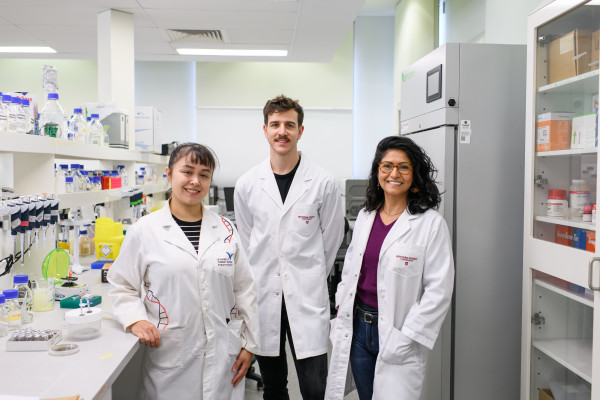LOAM Bio is working with the world’s smallest organisms to solve some of the world’s biggest problems – and is bringing a roadshow to Ouyen next week to provide information sessions for Mallee famers.
It will also stage events at Birchip and Sea Lake.
Loam is a fast-growing agricultural sustainability company which says it is working at the intersection of agriculture, microbial science and climate, addressing the problem of too much carbon in the atmosphere and not enough in soils where it is essential for soil health and agricultural productivity.
The science harnesses the power of the world’s smallest organisms to place agriculture at the forefront of climate change mitigation.
It is also the company behind CarbonBuilder, which it says is the next big thing in the sector.
“The product development behind CarbonBuilder has been a comprehensive and systematic process that encompasses cutting-edge scientific methods and rigorous field testing,” a spokesman says.
“We used stage gates to progress potential fungal strains and formulations from prototype through to product launch.
“The stage gates begin at microbial isolation and genetic selection and end with large-scale on-farm demonstration sites.
“Our global innovation team consists of microbiologists, soil scientists, formulation experts, agronomists and engineers to carry out our microbial product development platform that spans from in-silico selection to landscape-scale testing.
“And our rigorous approach to development means we are delivering robust practical products that farmers can use to increase carbon sequestration and reduce on-farm greenhouse gas emissions.”
The spokesman says its goal is to deliver new technologies and applications to support farmers to build soil carbon and reduce greenhouse gas emissions.
He says Loam Bio is mobilising the power of microbes to provide agriculture the reliable technology it needs to deliver sustainable supply chains.
Each year, Loam Bio delivers hundreds of replicated trials and analyses thousands of soil samples to ensure farmers have tools they can rely on to deliver large-scale climate action.
“Loam Bio wants to help more growers build soil carbon into cropping systems by staging these three free information sessions for local growers in country Victoria,” the spokesman adds.
He says they will cover topics such as:
· What is all the noise about soil carbon?
· What are my obligations for reporting my emissions?
· Do I have to be carbon neutral?
· What are the financial incentives in this new carbon economy?
· How building soil carbon and soil function can improve the whole farm system and your bottom line.
· How the new technology CarbonBuilder works and what it can do for your soil and crop health.
· Understanding the facts to decide if a soil carbon project is suitable for your farming operation.
· Understanding the ins and outs of entering into a high-performing SecondCrop soil carbon project with Loam for long-term sustainability and profitability.
To learn more about the sessions, visit:
· Ouyen on June 26 – https://events.humanitix.com/ouyen-vic-loam-bio-carbon-farming-free-information-session
· Sea Lake on June 27 – https://events.humanitix.com/sea-lake-vic-loam-bio-carbon-farming-free-information-session
· Birchip on June 28 – https://events.humanitix.com/birchip-vic-loam-bio-carbon-farming-free-breakfast-information-session
“These events are on the back of Aussie researchers announcing a scientific breakthrough: that fungi that can store carbon stably in soil,” he says.
“Researchers at Western Sydney University inoculated wheat seeds with fungi from a microbial library created by Loam Bio, an Australian biotech company.
“As the plants grew, researchers showed up to 9.4 per cent higher levels of carbon in soil compared to plants without fungi.
“Agricultural soil is the world’s biggest human-managed carbon sink.
“Now, farmers have a key to unlock it for climate mitigation.”
















